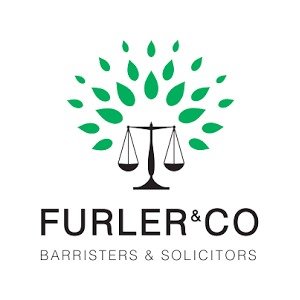Best Landlord & Tenant Lawyers in Clare
Share your needs with us, get contacted by law firms.
Free. Takes 2 min.
Free Guide to Hiring a Real Estate Lawyer
List of the best lawyers in Clare, Australia
About Landlord & Tenant Law in Clare, Australia
Landlord and tenant law in Clare, Australia, is governed by the Australian Residential Tenancies Act. These laws regulate rental agreements, rights, and responsibilities between landlords and tenants, and the recourse for disputes or violations. They cover areas like tenancy agreements, repairs, rent increases, bond reimbursements, notice periods, evictions, and more. It's crucial to know your rights and obligations to protect your interests whether you are a landlord or a tenant.
Why You May Need a Lawyer
Several situations may require the involvement of a lawyer in landlord & tenant matters. For instance, if you are a landlord, you might need legal advice when drafting rental agreements, struggling with problem tenants, facing rental arrears, or evicting a tenant. On the other hand, as a tenant, you might need legal help if you are facing eviction, dealing with unfair rent increases, struggling with uninhabitable living conditions, or your security deposit is not returned without proper cause. Lawyers specializing in this field can help interpret the law, protect your rights, and guide you through the legal process.
Local Laws Overview
In Clare, Australia, the Residential Tenancies Act is the predominant law concerning landlord and tenant relationships. Key aspects of these laws include the necessity for landlords to provide a safe and acceptable living environment, rights to peaceful enjoyment of the property by the tenant, the requirement of a bond, regulations around rental increases, and strict rules on eviction processes. Landlords must ensure all necessary repairs are completed promptly, while tenants are obliged to take good care of the property and report any damages promptly.
Frequently Asked Questions
What happens if a tenant breaks a lease early?
If a tenant breaks a lease early, they could be liable for loss of rent until a new tenant is found or the lease ends. However, the landlord is also obligated to minimize this loss by finding a new tenant as quickly as possible.
Can a landlord increase the rent anytime?
No, a landlord cannot increase the rent at any time. The law stipulates duration and notice periods before rent can be increased, and rent can only be increased once in a six-month period.
Can a landlord enter the property without permission?
No, a landlord must give proper notice before entering the property, except in an emergency or if consent is given by the tenant.
What can a tenant do if the property is not maintained properly?
A tenant is within their rights to request urgent repairs if the property falls into disrepair. If the landlord does not conduct these repairs, further legal action could be taken by the tenant.
When can a landlord evict a tenant?
A landlord can evict a tenant for several reasons including failure to pay rent, if the property is being used for illegal purposes, or if the tenant has seriously damaged the property. However, they must follow the legal eviction process prescribed by law.
Additional Resources
For additional information, the South Australia Government's website has a wealth of resources on landlord and tenant laws. The website of the Legal Services Commission of South Australia also provides detailed guides on this topic.
Next Steps
If you need legal assistance in landlord & tenant matters, it's advisable to seek advice from a lawyer who specializes in this field. They can provide legal counsel, representation, and help you navigate the complexities of the law. Alternatively, you might want to consult with legal aid organizations that offer affordable or free legal services.
Lawzana helps you find the best lawyers and law firms in Clare through a curated and pre-screened list of qualified legal professionals. Our platform offers rankings and detailed profiles of attorneys and law firms, allowing you to compare based on practice areas, including Landlord & Tenant, experience, and client feedback.
Each profile includes a description of the firm's areas of practice, client reviews, team members and partners, year of establishment, spoken languages, office locations, contact information, social media presence, and any published articles or resources. Most firms on our platform speak English and are experienced in both local and international legal matters.
Get a quote from top-rated law firms in Clare, Australia — quickly, securely, and without unnecessary hassle.
Disclaimer:
The information provided on this page is for general informational purposes only and does not constitute legal advice. While we strive to ensure the accuracy and relevance of the content, legal information may change over time, and interpretations of the law can vary. You should always consult with a qualified legal professional for advice specific to your situation.
We disclaim all liability for actions taken or not taken based on the content of this page. If you believe any information is incorrect or outdated, please contact us, and we will review and update it where appropriate.








